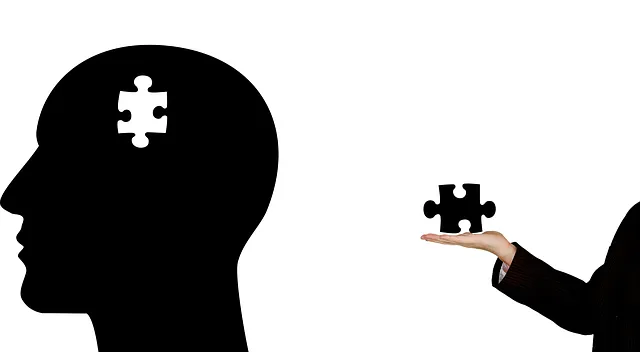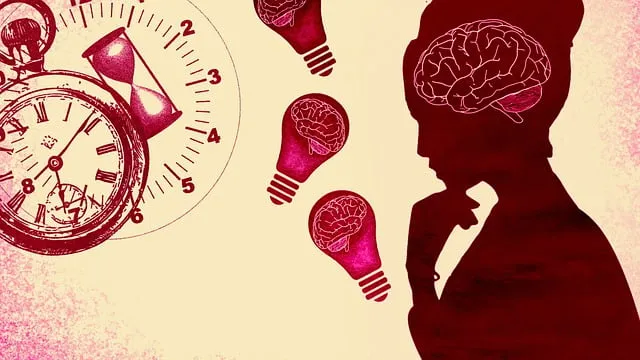Mental health advocacy, exemplified by Lone Tree Kaiser Permanente's behavioral health services, plays a pivotal role in reducing stigma and enhancing understanding through comprehensive programs. These initiatives raise awareness, promote support, and advocate for policies prioritizing mental well-being, making care more accessible. By offering individual therapy, group support, trauma healing, substance abuse recovery, and stress management, Lone Tree KP empowers individuals to manage their mental health holistically. Their multi-faceted approach includes partnerships, professional training, and public campaigns, destigmatizing mental illness and positively impacting diverse communities. Effective advocacy combines educational campaigns, coping skill workshops, self-care promotion (like exercise, mindfulness), and engaging with primary care settings to foster open conversations about mental wellness, making it a collective responsibility to support emotional healing as integral to overall well-being.
Mental health advocacy is a powerful tool for creating positive change. This article explores initiatives that support and promote mental well-being, focusing on Lone Tree Kaiser Permanente’s behavioral health services as a successful model. We’ll delve into the significance of advocacy, its impact on diverse communities, and effective strategies to enhance access to essential resources. By understanding these approaches, we can foster healthier environments and improve lives, especially in areas like Lone Tree Kaiser Permanente, where dedicated programs make a tangible difference.
- Understanding Mental Health Advocacy: Why It Matters and Who It Benefits
- Lone Tree Kaiser Permanente Behavioral Health Services: A Closer Look
- Strategies for Effective Mental Health Advocacy Initiatives
- Overcoming Barriers: Expanding Access to Mental Health Resources in the Community
Understanding Mental Health Advocacy: Why It Matters and Who It Benefits

Mental health advocacy is a powerful tool for creating positive change and fostering understanding. It involves raising awareness, promoting support, and advocating for policies that prioritize mental well-being. This initiative is paramount in addressing the growing need for accessible and comprehensive behavioral health services, such as those offered by Lone Tree Kaiser Permanente. By amplifying conversations around mental health, we break down stigma and encourage individuals to seek help without fear of judgment.
Advocacy benefits a diverse range of people. It empowers individuals with mental health conditions to have their voices heard, ensuring their needs are represented in healthcare decisions. Moreover, it educates the broader community about various aspects of mental health, including the effectiveness of self-care practices as part of holistic well-being. Mental Health Awareness and Education Programs Design play a pivotal role in this process, enabling people to recognize signs early on and offer crucial support to their peers.
Lone Tree Kaiser Permanente Behavioral Health Services: A Closer Look

Lone Tree Kaiser Permanente Behavioral Health Services stands as a beacon of hope and support within the community, dedicated to addressing the intricate needs of mental health. This initiative prioritizes accessible and comprehensive care, integrating various services tailored to diverse populations. Through a multi-faceted approach, they offer individual therapy, group support sessions, and innovative programs focused on trauma healing, substance abuse recovery, and stress management.
Beyond direct service provision, Lone Tree Kaiser Permanente actively engages in Community Outreach Program Implementation, fostering partnerships with local organizations to broaden its impact. They also emphasize professional development by offering training sessions on risk assessment for mental health professionals, ensuring a competent and compassionate workforce. Additionally, their Public Awareness Campaigns Development efforts aim to destigmatize mental illness, encouraging open conversations and promoting early intervention strategies.
Strategies for Effective Mental Health Advocacy Initiatives

Mental health advocacy initiatives require a multi-faceted approach to create meaningful change. One key strategy involves raising awareness through educational campaigns and events, such as workshops focused on coping skills development and stress management techniques. Engaging with communities, including organizations like Lone Tree Kaiser Permanente behavioral health services, is essential to reaching diverse populations and fostering open conversations about mental wellness.
Additionally, promoting self-care routine development for better mental health can empower individuals to take proactive steps. This includes encouraging healthy habits like regular exercise, mindfulness practices, and adequate sleep, which are supported by evidence-based research. By combining awareness efforts with practical tools, advocacy initiatives can effectively address mental health challenges at both individual and community levels.
Overcoming Barriers: Expanding Access to Mental Health Resources in the Community

Mental health advocacy initiatives play a pivotal role in breaking down barriers that prevent individuals from seeking support. One notable example is Lone Tree Kaiser Permanente’s behavioral health services, which have made significant strides in expanding access to mental health resources within the community. By integrating these services into primary care settings, they’ve normalized conversations around mental health and reduced the stigma associated with seeking help.
This approach not only facilitates easier entry into care but also ensures that individuals receive holistic support tailored to their needs. Programs like Social Skills Training and Public Awareness Campaigns Development further enhance access by educating communities on recognizing symptoms of mental illness and promoting effective coping strategies. These initiatives foster an environment where emotional healing processes are encouraged, accessible, and understood as essential components of overall well-being.
Mental health advocacy initiatives, such as those exemplified by Lone Tree Kaiser Permanente Behavioral Health Services, play a pivotal role in fostering community well-being. By understanding the importance of these efforts and implementing effective strategies, we can significantly improve access to mental health resources. Overcoming barriers through collaborative approaches ensures that everyone, regardless of their circumstances, has the opportunity to thrive. Through continued advocacy and innovative practices, we can create a more supportive and inclusive society for those facing mental health challenges.






